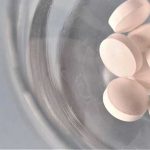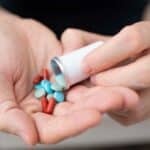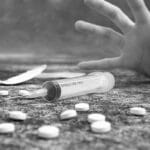Methamphetamine hydrochloride (brand name Desoxyn) is a central nervous system (CNS) stimulant drug. This prescription drug helps treat symptoms brought on by attention deficit hyperactivity disorder (ADHD) as well as narcolepsy, a sleeping disorder.
Desoxyn is labeled as a schedule II substance according to the Controlled Substances Act, meaning that it has a high potential for abuse. With such a high potential for abuse, serious side effects of Desoxyn can occur, including a possible overdose.
Symptoms Of A Desoxyn Overdose
Desoxyn works by increasing neurotransmitters such as dopamine in the brain. This increase in activity can cause feelings of euphoria or a “high,” especially when abused.
An overdose of Desoxyn can take place when a person abuses the drug. According to the National Institute on Drug Abuse, (NIDA), some of the common symptoms associated with a Desoxyn overdose include:
- hallucinations
- chest pain
- restlessness
- muscle weakness
- blurred vision
- rapid breathing
- constipation
- aggression
- dry mouth
- panic states
- increase in body temperature
- blood pressure increase
If you suspect an overdose has occurred, contact 911 or poison control immediately.
Cardiovascular Problems
In addition to the previously-mentioned side effects of an overdose, a person may also experience cardiovascular issues, another sign of a serious overdose. Long-time use of Desoxyn may lead to a weakened heart.
During an overdose, blood pressure and heart rate fluctuations may occur. If a person has heart problems, a damaged heart, or has hypertension, a heart attack can take place.
Some of these symptoms of a Desoxyn overdose may show physical signs such as seizures, convulsions, or tremors.
Desoxyn Overdose Risk Factors
There are a number of factors that can put you more at risk of having a Desoxyn overdose, including pre-existing conditions as well as any current medications you take.
Tourette’s Syndrome
Taking large quantities of the drug during a short period of time can cause tics or involuntary movements of the body. By abusing Desoxyn, these tics can be exacerbated.
Those with Tourette’s Syndrome should also not abuse Desoxyn, as tics can become severe tremors if an overdose occurs.
Obesity
Those who are obese may be prescribed Desoxyn for weight loss if they have tried alternative medications first.
Unfortunately, the effects of Desoxyn may cause people to potentially take more of the medication than prescribed due to the weight loss potential.
By using the drug in this manner and taking higher doses, a person is more at risk of an overdose.
Combining Medications
Drug interactions can occur if a person combines Desoxyn with other medications such as opioids or benzodiazepines.
Amphetamines such as Adderall or Ritalin should not be mixed with Desoxyn. Combining medications can lead to life-threatening drug interactions which may lead to an overdose or sudden death.
Mental Health Issues
According to the Substance Abuse and Mental Health Services Administration (SAMHSA), serious mental conditions can occur when Desoxyn is abused. Combining antidepressants and monoamine oxidase inhibitors (MAOIs) may lead to severe hallucinations.
A person’s mental health can seriously suffer if they overdose on Desoxyn. With possible outcomes like psychosis, mental health concerns for those with bipolar disorder is of even greater concern.
According to the United States Food and Drug Administration (FDA), those with bipolar disorder should always consult their doctor before taking Desoxyn.
Treatment For A Desoxyn Overdose
In order to treat a Desoxyn overdose, you or your loved one will likely need to be taken to the hospital immediately.
Those who have recovered from a Desoxyn overdose may require detoxification. Through detox, your body can rid itself of unwanted toxins caused by drug abuse. Although a short-term process, it is the first step in beginning addiction treatment.
At Northeast Addictions Treatment Center, we offer a variety of outpatient treatment programs. To learn more, please contact us today.
Sources
- Drug Enforcement Administration — Methamphetamine
- Food and Drug Administration — Desoxyn
- National Institute on Drug Abuse — What is Methamphetamine?
- National Library of Medicine: MedlinePlus — Methamphetamine Overdose
- Substance Abuse and Mental Health Services Administration — Treatment of Stimulant Use Disorders
Written by
Northeast Addition Editorial Team
©2024 Northeast Addition Center | All Rights Reserved
This page does not provide medical advice.




